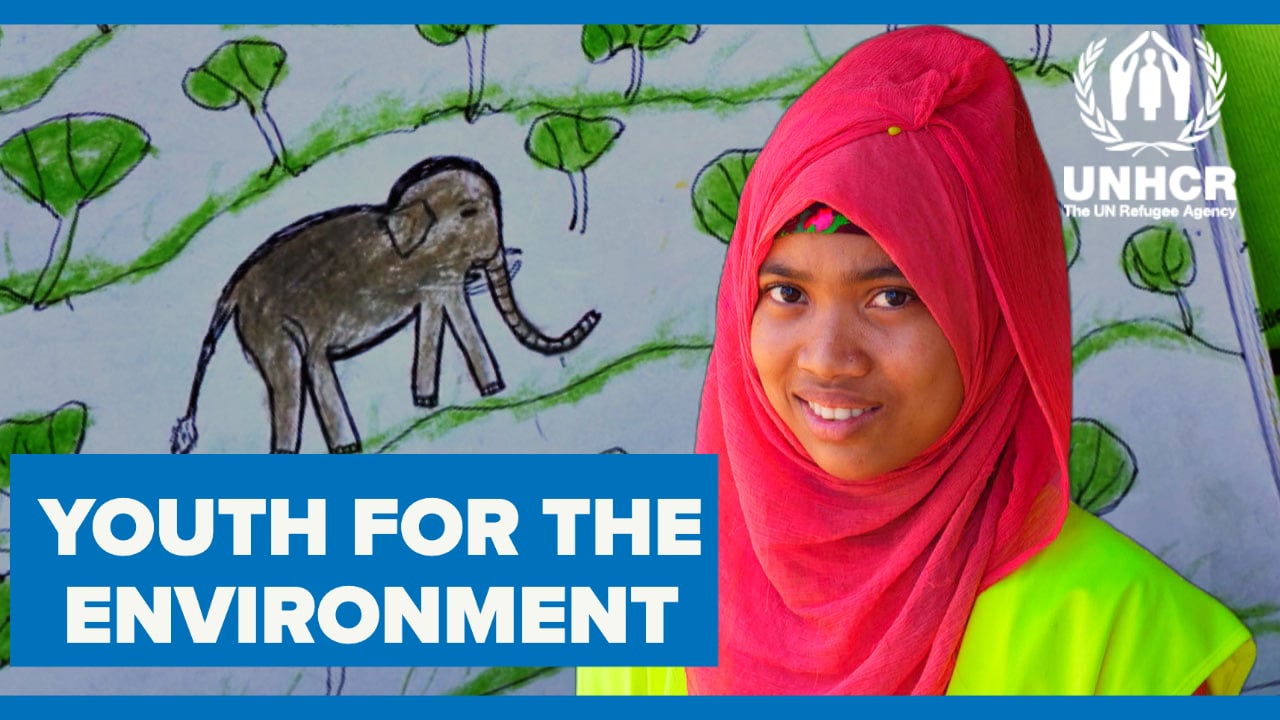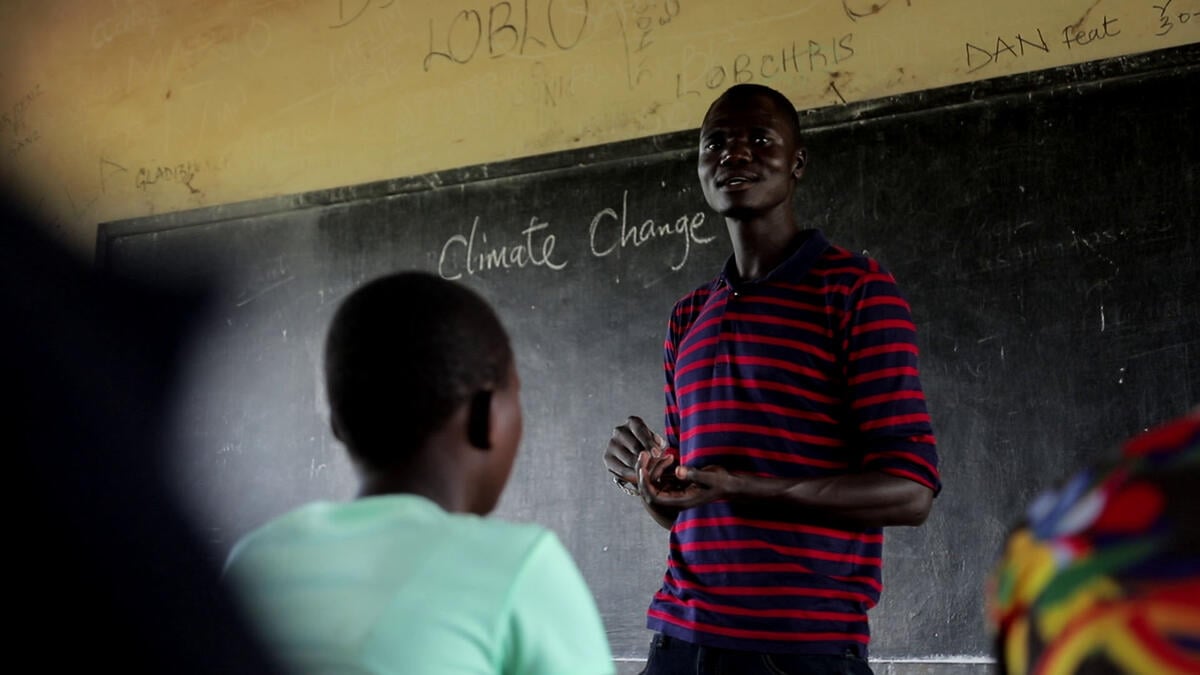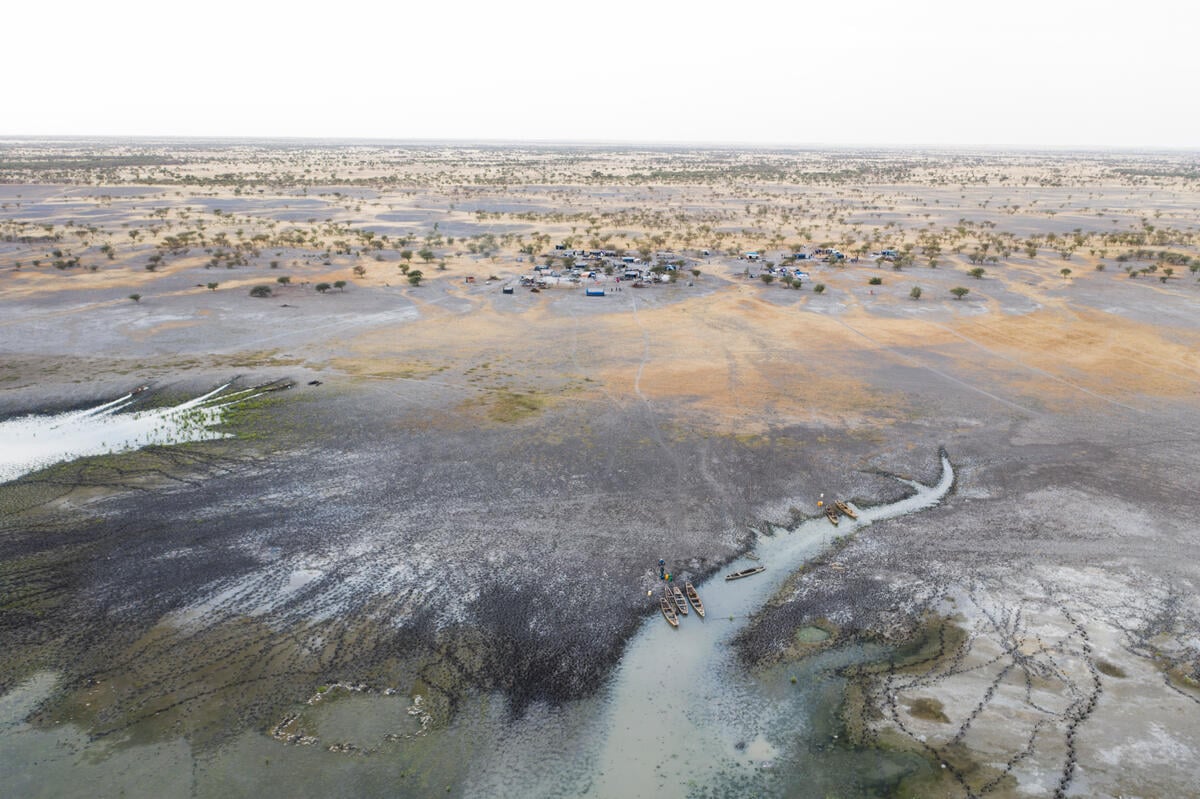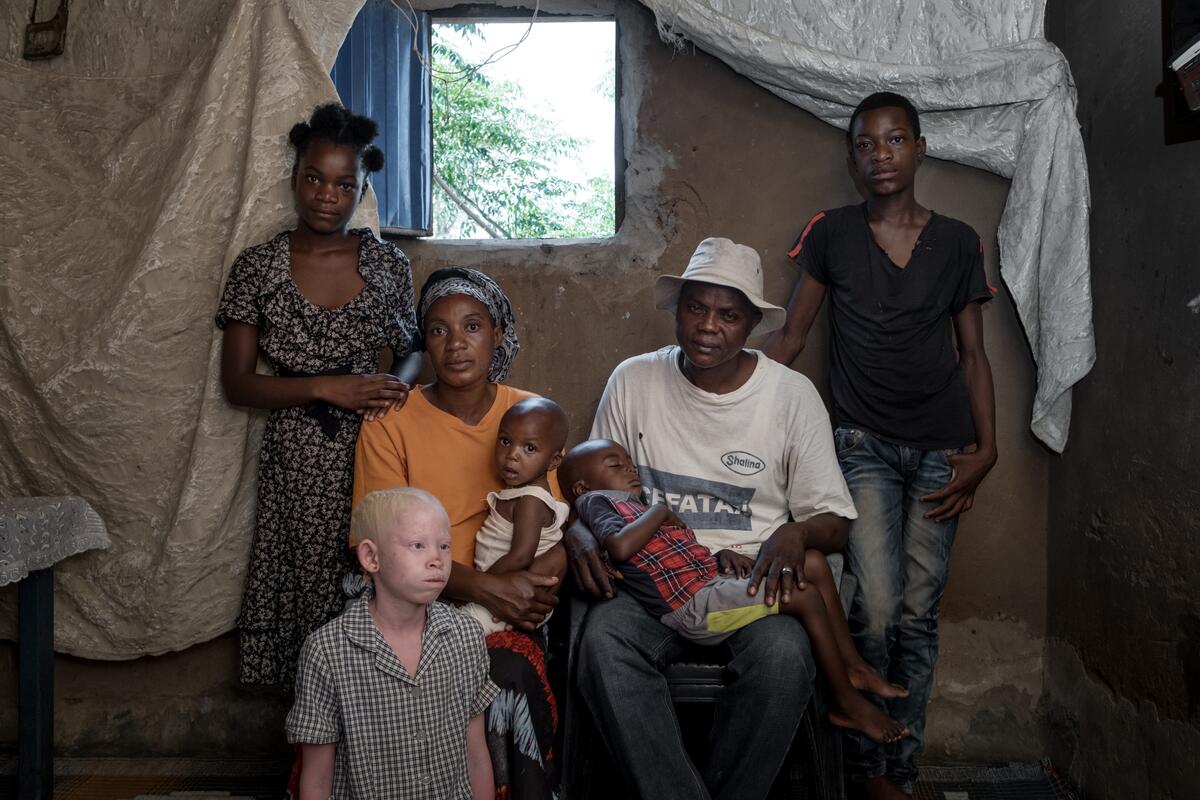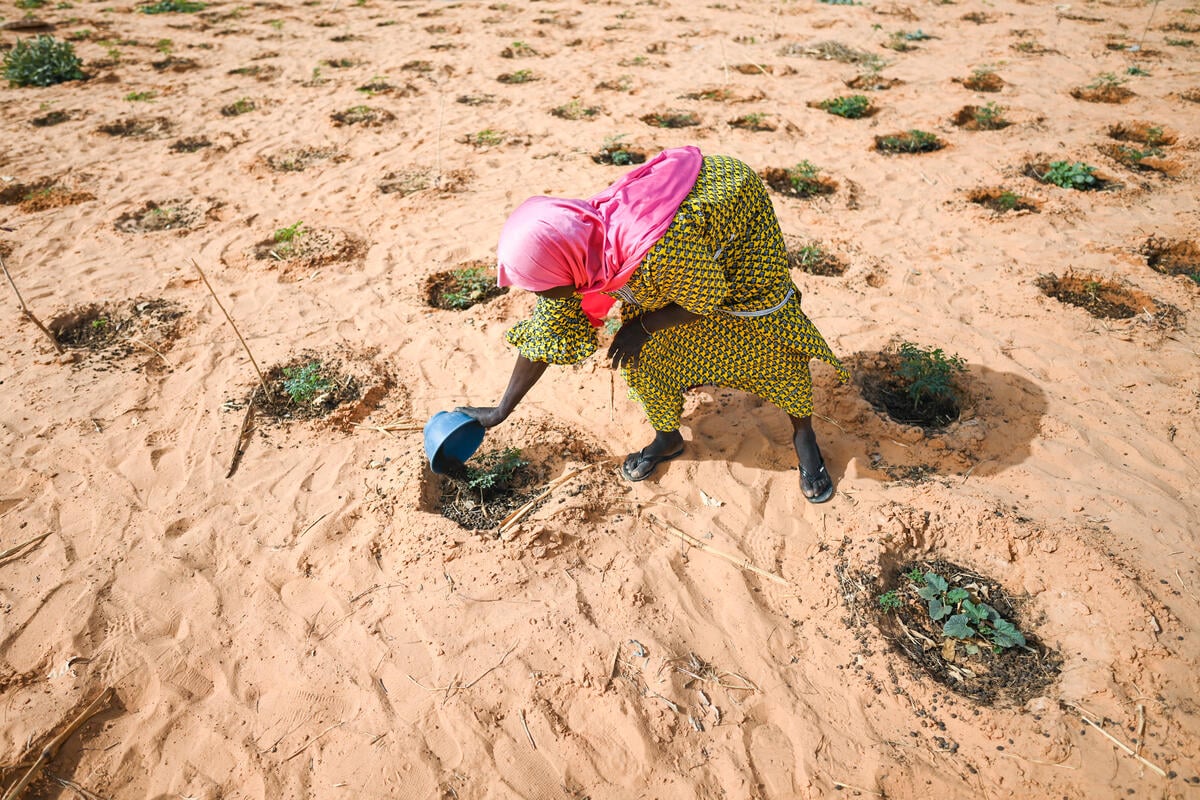Former 'nature beginner' is now on the front lines of the fight against climate change
Former 'nature beginner' is now on the front lines of the fight against climate change
When he thinks back to his life back before he arrived in Guatemala, Joshua* struggles to reconcile the person he was then with who he is now. For him, the symbol of that radical personal transformation is the snake.
“It used to be that if I saw a snake, my instinctual reaction was to kill it,” recalled Joshua, who was just a teenager when gang threats forced him to flee his home in a neighbouring Central American nation to seek safety in Guatemala.
Now, he says handling snakes is one of the highlights of a job which he credits with giving him an entirely new outlook on life. Since early in the COVID-19 pandemic, Joshua has been working as a forest ranger at a natural preserve in southeastern Guatemala.
Thanks to a partnership with UNHCR, the UN Refugee Agency, FUNDAECO – the NGO that runs the preserve, as well as more than a dozen other sites throughout Guatemala – prioritizes the hiring of people like Joshua, who have been forced to leave their homes due to violence, targeted threats or persecution.
When he started at FUNDAECO, Joshua had little interest in the great outdoors and took the job largely because it represented a welcome alternative to sporadic work as a day labourer. Like most of his fellow refugee and asylum-seeking co-workers, almost all of them Central Americans, Joshua hailed from a densely populated city.
"I was a nature beginner, a rooky in relation to the natural world."
Growing up, he had only sporadic contact with nature, and on the rare occasions he did cross paths with animals, it generally did not end well for the critters. But working in the FUNDAECO preserve, a lush 7,436-hectare enclave of towering tropical trees and crystalline streams, has given Joshua a new appreciation for the outdoors and the creatures that populate it – including his unexpected newfound passion: snakes.
“I was a nature beginner, a rooky in relation to the natural world,” said Joshua, 21, who now gets visibly flustered if he fails to come up with both the common and Latin names of any of the plethora of species he comes into contact with at the preserve. They include the endangered and translucent “glass frog”, and the venomous “Mano-de-piedra” snake, also known as the “jumping viper”. “When you’re in contact with nature, it becomes so exciting to be able to take care of it. Nature appreciates it.”
Joshua was just 17 when he fled his native country with his mother and siblings, after gang members informed the family that they would be taking over their home. Knowing that any resistance could prove fatal, the family left the next morning, slipping over the border into Guatemala, where the father of Joshua’s half-siblings lives. They arrived with nothing more than the few changes of clothes they managed to throw into backpacks before fleeing.
More than 1.3 million people have been forced to flee Central America due to violence and persecution. While most have sought protection outside of their country, national profiling studies in El Salvador and Honduras suggest both countries also face large-scale internal displacement.
Finding steady work can be among the most daunting hurdles for displaced people like Joshua and his family. Without papers, many are forced to work as day labourers or street vendors to make ends meet in their host countries. FUNDAECO’s programme is providing dozens of refugees and asylum seekers with steady jobs and the training they need to do them. Since the programme started in 2020, the organization has brought on 113 refugees and asylum seekers, most of them from Honduras, El Salvador, Nicaragua and Cuba.
While Joshua’s title at the preserve is, officially “maintenance worker”, his duties are manifold and go well beyond repairing trails and facilities. He has become one of the preserve’s unofficial snake wranglers, caring for the animals on display in the guest centre and responding to calls when snakes in the wild come into too close contact with visitors. He has nursed dozens of injured animals back to health and released them back into the wild. And, because his knack with people has not gone unnoticed, Joshua has also been assigned to help lead expeditions, accompanying visiting researchers and nature photographers from all over the world.
Robin Scholte, who was part of a group of amateur bird photographers from northern Europe recently at the preserve to shoot hummingbirds, praised Joshua’s dedication.
“We don’t have a common language,” said Robin, who is Dutch. “But despite the language barrier, Joshua’s passion for nature really comes through.”
For Azucena Mejía, the director of the preserve, seeing Joshua blossom into a passionate environmental crusader is proof of the value of the programme with UNHCR, which she describes as a win-win-win, for forcibly displaced people, for plants and animals, and for society at large.
“We’re not just taking care of this particular forest. We’re really making a very important contribution to all humanity,” she said.
Guatemala is what the environmental organization Rainforest Alliance calls a “biodiversity hotspot”. Its relatively modest territory is packed with different terrains and microclimates, including mountainous highlands, warm coastal regions and tropical forests that are home to an astonishing array of flora and fauna. But climate change, forest fires, land degradation linked to narcotrafficking, and poor land management have led to what the group deems “devastating levels of deforestation”.
Even protected forests like the one where Joshua works are under threat. A 2020 study relying on satellite data suggested that more than 854,000 hectares were deforested within Guatemalan nature preserves from 2000 to 2017 alone.
For Joshua, his work at FUNDAECO is about much more than bringing home a paycheck, however crucial his salary is for him and his family. He is keenly aware that he is playing a role in something much bigger than himself – the fight to protect a dwindling resource which, as climate change makes itself increasingly felt, has never been more crucial for the future of the planet.
“I love nature,” he said. “And I know that what I do is important not only for me personally, but that it’s actually benefitting everyone.”
*Name changed and country of origin omitted for protection reasons.








